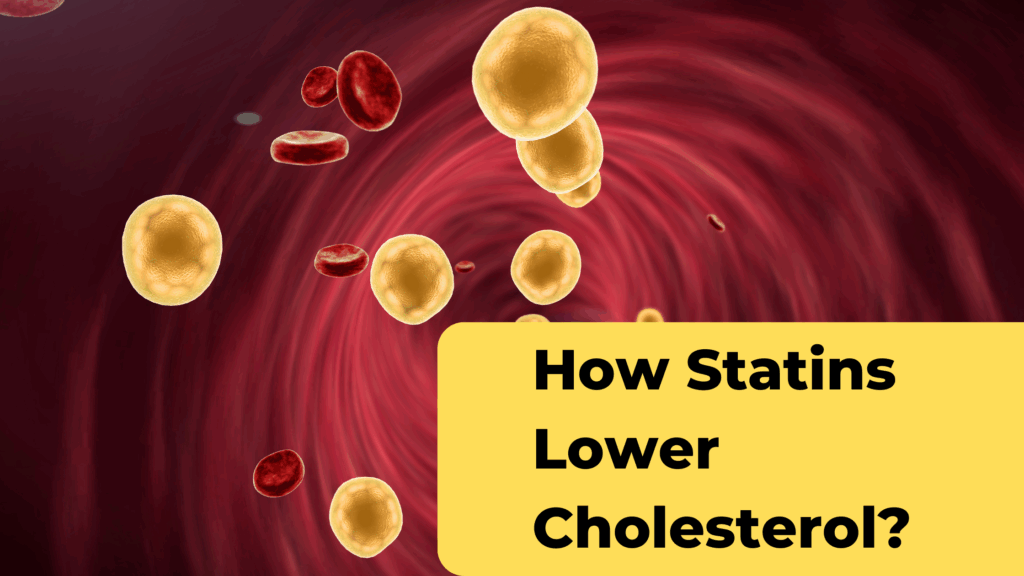Introduction
High cholesterol is a common problem that can lead to heart disease and strokes. Many people rely on statins to lower their cholesterol and keep their hearts healthy. But how exactly do these medicines work? In this article, you’ll learn how statins lower cholesterol, their science, and the benefits they offer.
Table of Contents
What Are Statins? An Overview
Definition and Types of Statins
Statins are drugs that block a specific enzyme in your body called HMG-CoA reductase. This enzyme helps your liver make cholesterol. When statins block this enzyme, your liver makes less cholesterol. The most common types include atorvastatin, simvastatin, and rosuvastatin. Each type has slightly different strengths and use cases.
How Statins Are Prescribed
Doctors prescribe statins based on your cholesterol levels and overall risk for heart disease. If your bad cholesterol (LDL) is high, or if you have other risk factors like diabetes or high blood pressure, you might get a statin. The dosage depends on how much your doctor wants to lower your LDL.
Effectiveness and Success Rates
Research shows that statins can lower LDL cholesterol by about 20 to 50 percent. They also help prevent heart attacks and strokes. Many people see real health improvements after starting a statin, especially if they follow other healthy habits.
The Science Behind Cholesterol and Heart Disease
Cholesterol Types and Their Roles
Cholesterol isn’t all bad. LDL is often called “bad cholesterol” because it can clog arteries. HDL, or “good cholesterol,” helps clean up excess cholesterol. VLDL carries fat to tissues and can also contribute to artery clogging.
Pathophysiology of Cholesterol Buildup
Over time, high LDL levels can lead to the formation of plaques on artery walls. These plaques narrow the arteries and block blood flow. Once blocked, it can cause a heart attack or stroke. This process is called atherosclerosis.
Statins and Cardiovascular Risk Reduction
Lowering LDL with statins reduces the chances of heart events. Many studies show that people taking statins have fewer heart attacks. Not just for those with existing heart disease, statins also help prevent it in healthy people at risk.
How Statins Lower Cholesterol: The Mechanism of Action
Inhibition of HMG-CoA Reductase Enzyme
Statins block the enzyme HMG-CoA reductase. Think of this enzyme as a factory worker making cholesterol in your liver. When the worker is stopped, less cholesterol is produced. This directly cuts down your liver’s cholesterol supply.
Decrease in Liver Cholesterol Synthesis
Because the enzyme is blocked, your liver’s cholesterol levels drop. When the liver detects less cholesterol, it gets more active to grab more from your blood. This sparks a chain reaction.
Upregulation of LDL Receptors
Your liver responds by increasing the number of LDL receptors on its surface. These receptors act like hooks, pulling LDL cholesterol out of your bloodstream. The more hooks, the more LDL gets removed.
Resultant Reduction in LDL Levels and Impact on Other Lipids
As LDL gets pulled out, blood levels drop. Triglycerides might also decrease, while HDL levels can increase slightly. This change helps stabilize plaques and improves how your blood vessels work.
Additional Benefits and Considerations
Anti-Inflammatory Effects of Statins
New evidence suggests that statins do more than lower cholesterol. They can reduce inflammation inside blood vessels. This reduces the risk of plaque rupture, which can cause a heart attack.
Impact on Blood Vessel Function
Statins tend to improve how blood vessels work. They help the lining of your arteries, called the endothelium, function better. Better blood flow means less strain on your heart.
Potential Side Effects and Risks
Most people tolerate statins well. Some might experience muscle aches or mild liver enzyme increases. Rarely, serious side effects like muscle breakdown (rhabdomyolysis) or a higher risk of diabetes can occur. Always discuss concerns with your doctor.
Actionable Tips for Patients Considering Statins
- Combine medication with healthy eating and regular exercise.
- Get routine tests to check cholesterol and liver health.
- Ask your healthcare provider about pros and cons before starting.
- Report any muscle pain or unusual symptoms right away.
Conclusion
Statins work by blocking a key enzyme in cholesterol production, which triggers the liver to remove more LDL from your blood. Their proven ability to cut down on heart disease risks makes them a vital part of many treatment plans. Remember, combining statins with a healthy lifestyle offers the best protection. Always talk with your doctor about your unique needs to build a plan that works for you.
References
- American Heart Association Guidelines on Cholesterol
- 2018 ACC/AHA Cholesterol Treatment Guidelines
- Recent studies in The Journal of Cardiology
- Landmark research on statins and cardiovascular risk reduction
Lypro-c is a nutritional supplement to normalize cholesterol

